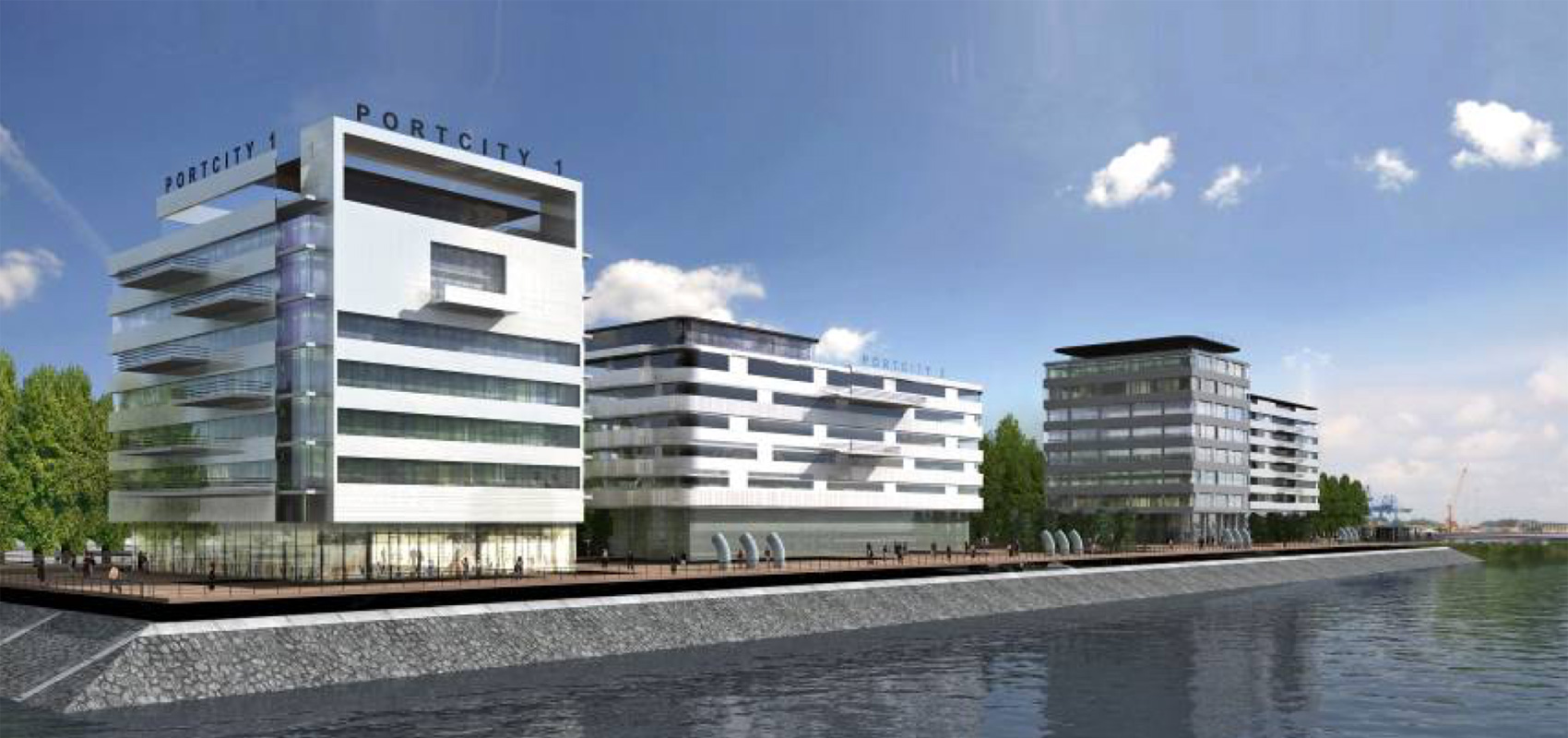Relation City – Port
On its own, a port cannot function properly, nor can it face competition. It needs partners, in particular the city or the region. On subjects like infrastructure, environment or attractiveness for new settlements a good cooperation is crucial to achieve a double objective: economic growth and better living conditions. We have worked on this theme in several ports and we are experienced in increasing the synergy between the different actors.

Reciprocal dependence
One of the major tasks of a port authority is to create favorable conditions for its customers. If the offer is interesting and competitive, companies will settle and goods will flow through the port, generating revenues. The city or region plays an important part in creating attractive settlement conditions (like services, infrastructure, account management, availability of qualified personnel, universities, research institutions, living conditions etcetera), which generate more revenues for the port.
In exchange, the port offers jobs, value added, even pride to the city. And the port pays attention to the interests of the population and strives to minimize the inconveniences.
Subjects:
- The environment: a port has to consider the context in which it operates. Transparency, visibility and pride contribute to the “license to operate” the port needs to function properly in an urban environment. In exchange for the potential disturbances, the port offers jobs and prosperity.
- The infrastructure: knowing that many goods transit through the city or the region, it is necessary that the used means of transportation have an acceptable quality regarding pollution, noise etc.
In the perspective of the “circular economy” the residual energy of the port industry can be used elsewhere in the port, the city or the region, requiring a specific infrastructure (as in Rotterdam). - Tourism: the city and the port have a common interest and a shared responsibility in attracting cruise ships. The same goes for making the port- and industrial complex more attractive for the inhabitants: cycle paths, panoramic viewpoints, hospitality, industrial tourism etc.
- The innovation climate: crucial in a competitive world, can be strengthened if knowledgeable institutions, like researchers and universities, cooperate with the public and private sectors on all domains.
- The business climate: involves the conditions and services needed to convince companies to settle in the port, the city or the region. Or to make use of the port, with the possibility to create value adding activities.
© 2017 Red-Ball Consultancy et Theorit Consultancy
